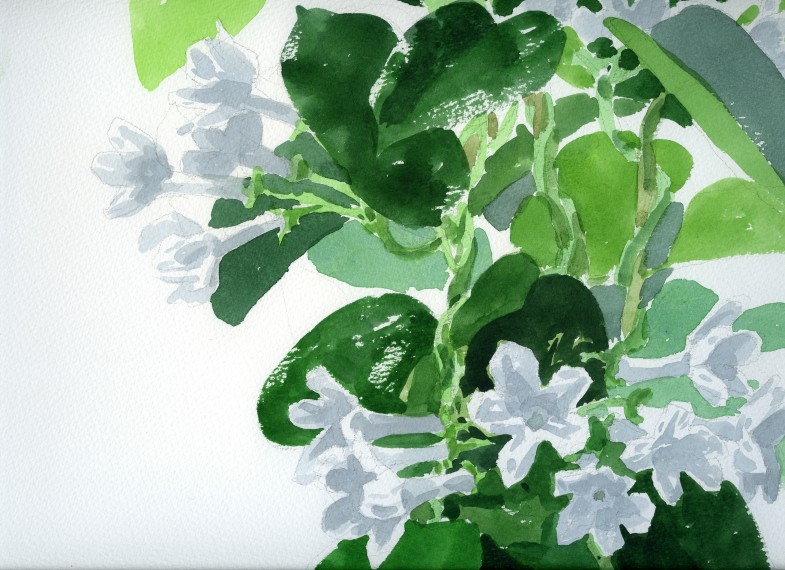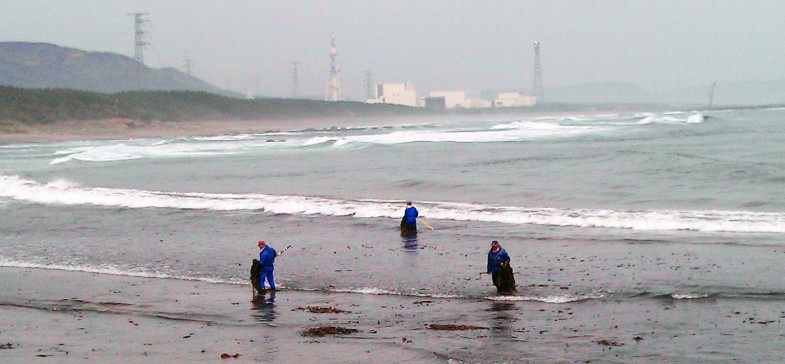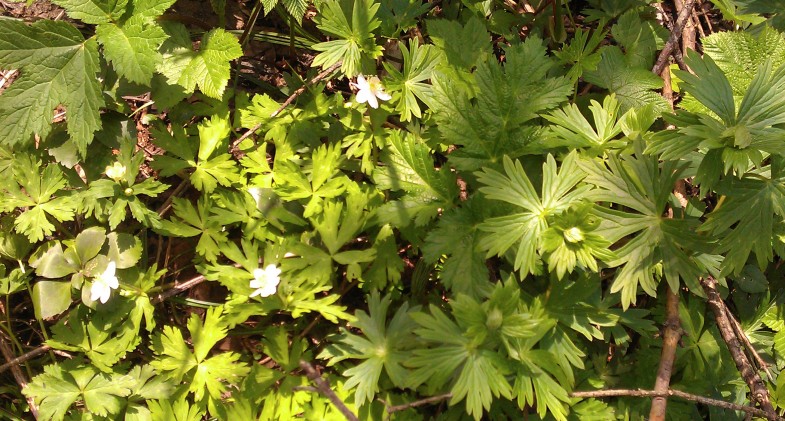
この小さな,しかも時々しかアップしないブログにも沢山の方々からのコメントを頂きます。有難うございます。全てのコメントは拝読させて頂いておりますが、実名の方がいらっしゃるなど、種々の事情からコメントについては殆ど公表しておりません。最近は特に外国人の方からのコメントが多くなっています。それらの中には、このサイトを積極的に広めるための様々なアドバイスもあります。ご厚意にはとても感謝していますが、このブログ自体、そんなに多くの人々の興味に応えられるほど話題の広さも深さもないことは、自分自身がよく知っています。またブログを書く時間もそんなに多くはありません。ですから、まだ当分は現在のように小さな、気ままなブログを続けながら、それらの方々からのコメントにも間接的に応えていきたいと考えています。
Thannk you very much for your comments to this small and indolent blog indeed. I have read all of it of course, but I haven’t been open to the public as some kind of reasons. Most of these comments are from forigners recently. You have given many useful advice to bloaden this site on the net. Although I greatly appreciate your kindness, I get understand this my blog is not wide and deep enough to meet the interest of a lot of people. And I don’t have so much time to spare. So I ‘d like to respond to you ” indirectly ” with this styled blog as it is.
このブログに掲載する絵は、展覧会や個人の作品の紹介をする場合を除き、すべて私個人の作品です。上の「マダガスカル・ジャスミン」は水彩6号をブログ上で部分的にカットしたものです。
I am a painter. When I paint pictures, I take many kind of paints. Some time taking acrylic, some time oil or water colour, some time tempera for example. And some time mixed together. All of paintings are by myself except the special case on this blog. This “White flowers (Madagascar jasmine )” is painted in water colour on paper. It is the part.

